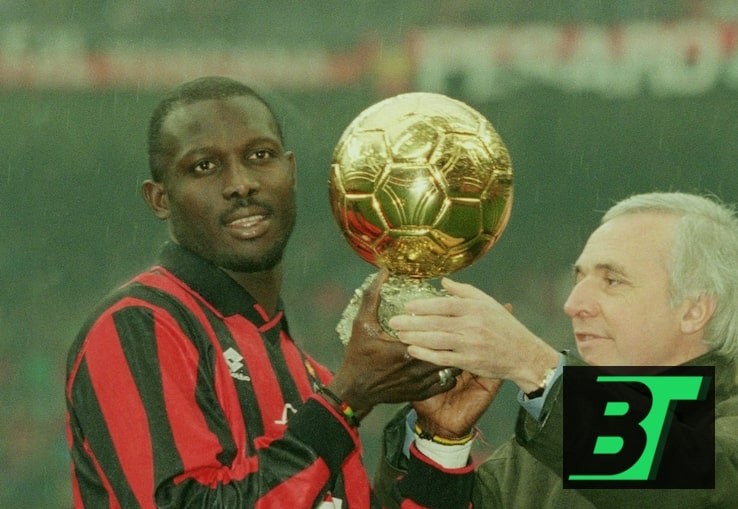
A complete look at George Weah, the Liberian striker whose rise from Monrovia to the Ballon d'Or reshaped African football history.
George Weah was born in Monrovia, Liberia, in 1966. Raised in the Clara Town slum by his grandmother, Weah faced adversity from an early age. Despite limited resources, his talent with a football was evident. He began playing for local clubs like Young Survivors and Invincible Eleven, where his raw speed and physical power set him apart. His performances in the Liberian league were enough to catch the eye of talent scouts beyond Africa, setting him on a path few players from the continent had ever taken before.
Weah's first major move was to Tonnerre Yaoundé in Cameroon, but the real breakthrough came when Arsène Wenger signed him for AS Monaco in 1988. Wenger recognized Weah's potential and helped refine his natural abilities into something far more complete. In France, Weah quickly became known for his goal-scoring ability and flair. After Monaco, he joined Paris Saint-Germain, where he truly exploded onto the European scene, helping the club win Ligue 1 and perform strongly in the UEFA Champions League.
In 1995, Weah made the move to AC Milan, one of Europe’s most prestigious clubs. It was in Italy where he would enjoy his most iconic years. With Milan, Weah won two Serie A titles and was regarded as one of the best forwards in the world. His goal against Verona in 1996, where he ran nearly the entire length of the field, remains one of the greatest goals ever scored in the league. He combined strength, balance, intelligence, and composure in a way that made him a nightmare for defenders.
Weah’s achievements culminated in 1995 when he won the Ballon d'Or, becoming the first and only African player to receive the award. He was also named FIFA World Player of the Year the same season. This recognition was more than individual success—it was a symbolic victory for African football. Weah broke barriers and demonstrated that talent from any part of the world could shine at the highest level, inspiring generations of young African players.
Unlike many global stars, Weah never turned his back on his homeland. He represented the Liberian national team with pride, funding training camps, travel, and kits out of his own pocket. Although Liberia never qualified for a World Cup during his playing career, his efforts helped raise the nation's footballing profile. His loyalty and service made him a national hero, both on and off the pitch.
After retiring from football, Weah continued to lead in a different arena. He entered politics and, in 2018, became the President of Liberia. His journey from slum football to the highest office in his country is a unique story in the sports world. As president, he has focused on education, infrastructure, and economic reform, although his administration has faced significant challenges. Still, his leadership reflects the same drive and determination he showed on the pitch.
George Weah’s legacy is not just defined by goals or trophies but by what he represented. He paved the way for African players in Europe at a time when opportunities were scarce. He remains a source of pride and inspiration across Africa. Weah’s story proves that greatness comes not just from talent but from resilience, humility, and an unwavering commitment to one’s roots. Few footballers have had an impact as broad and lasting as his, both in the game and beyond it.